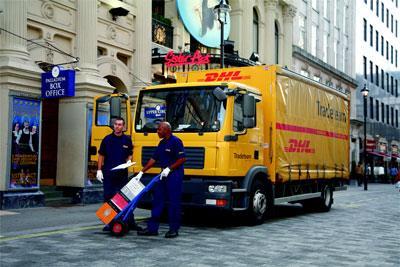
Tradeteam
DHL’s drinks distribution operation Tradeteam operates 500 vehicles and employs 2,000 staff, and in a sector that has traditionally involved a lot of manual handling has invested a lot of time, money and effort in creating a safer working environment.
The focus has been on reducing its lost time injury frequency rate, a key measure that has plummeted from 10.37 in 2005 to 1.43 in 2011. To measure its performance even more rigorously, the company is focusing on the total injury frequency rate in 2012.
Tradeteam has introduced a number of initiatives designed to reduce accident rates. Extensive training programmes were designed and delivered by a team of inhouse trainers, with all new starters undergoing a two-week induction before beginning work. This includes spending time in a mock up cellar and is followed by continuous assessment to ensure they can fulfil their role safely.
Vehicles have been modified to make them safer to unload, drivers have been specifically trained in the ‘Smith System’ of defensive driving and Loughborough University brought in to bring a fresh pair of eyes to its health and safety.
Judges commented on the "very professional submission" and said safety is "embedded in the Tradeteam culture". They also praised the top-down commitment and the good range of initiatives with excellent outcomes. As one judge pointed out: "Drinks delivery is a manual and demanding job so Tradeteam has done well to achieve excellent cuts in accident rates."
Yusen Logistics (UK)
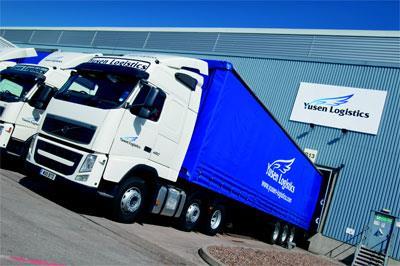
Yusen Logistics believes that safety is a ‘cornerstone’ of its business and strives to make health and safety a seamless part of its business, not just a bolt-on.
This approach has seen a number of improvements in the company’s health and safety record in 2011, including: a 15% decrease in winter LGV accidents; 40% reduction in reportable accidents; and an 11% decrease in minor accidents. A spin-off benefits was a 3.5% improvement in fuel economy on the LGV fleet.
An inhouse team has trained drivers in safe and efficient driving techniques, which also counts towards the Driver CPC, and over 300 drivers have already done 14 of the 35 hours they require to get their Driver Qualification Cards. Yusen’s driver risk profiling system has been improved allowing individual action plans to be developed.
Management has been trained in health and safety, and online courses are being rolled out to warehouse team leaders to reinforce their personal responsibilities. New starters are shown a safety induction DVD explaining clearly and simply what is expected of them from day one.
Judges said Yusen had a good ethos ad that the risk profiling was a good idea – especially with the bespoke follow up actions. They liked the top down approach, which insisted on all directors having training and praised the “excellent” drivers hand book.
DS Smith Logistics
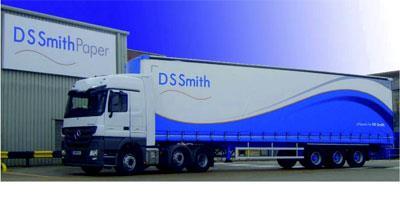
In a detailed entry packed with statistics, paper distribution specialist DS Smith Logistics spelt out how it had cut its total lost time accidents from 14 in 2008 to just two in 2011.
After suffering a spate of empty trailer blowovers in high winds in 2007, the company began monitoring weather conditions and communicating with drivers of high risk vehicles. As a result it has had no blowovers since 2008.
The company also tackled the problem of vehicle rollovers from a number of angles, including the development in partnership with Lawrence David of a roof mounted ratchet load security system and the specification of roll stability braking on all new trailers. Driver behaviour was monitored with the installation of in-cab cameras and a driver risk review system developed to identify problems and target appropriate training. As a result, the company has reduced its rollover risk by 90% and no longer employs any high or medium risk rated drivers.
To head off accidents before they happen, the company introduced a near miss reporting system that investigates and acts on safety alerts from employees.
Judges praised the company for tackling a broad range of issues and its excellent improvement in lost time accidents. They commented that the entry included good statistics and historical evidence and there had been a huge increase in near-miss reporting.
Wincanton (BPGas contract)
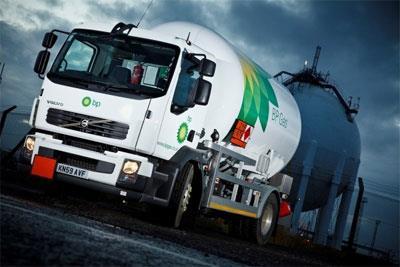
Wincanton won the contract to handle national transport of LPG for BPGas in 2008, and in 2009 the two companies introduced a three year safety programme – Group Accountability for Safety (GAS).
LPG is an inherently hazardous product, and the scale of the operation is large, spanning 19 sites, 70 vehicles, up to 100 drivers and 70,000 deliveries a year to 18,000 customers.
Nevertheless, GAS has achieved some impressive results over the three years, including zero lost time incidents, a 50% reduction in reportable incidents and an 84% reduction in personal injuries.
These have been achieved by the introduction of: a ‘Learning without Loss’ suggestion scheme, which rewards the best health and safety idea each month with £100; a process to learn from accidents involving other similar operations around the world; comprehensive driver inductions; an apprenticeship scheme to train new drivers with the right mindset; and investment in 20 new vehicles fitted with a range of safety features including reversing cameras and anti-rollover protection.
The GAS programme was delivered by a joint Wincanton/BPGas steering group and monitored by a new health and safety reporting tool.
Judges liked the excellent stats which were presented in a simple, clear, unfussy entry. The record of zero lost time accidents in three years was impressive and there was good use of incentives to get employees onboard.











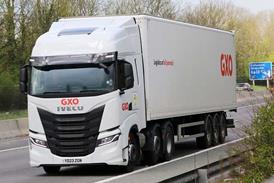

![Mercedes-Benz_eActros_600_(1)[1]](https://d2cohhpa0jt4tw.cloudfront.net/Pictures/274x183/8/2/0/17820_mercedesbenz_eactros_600_11_978080.jpg)